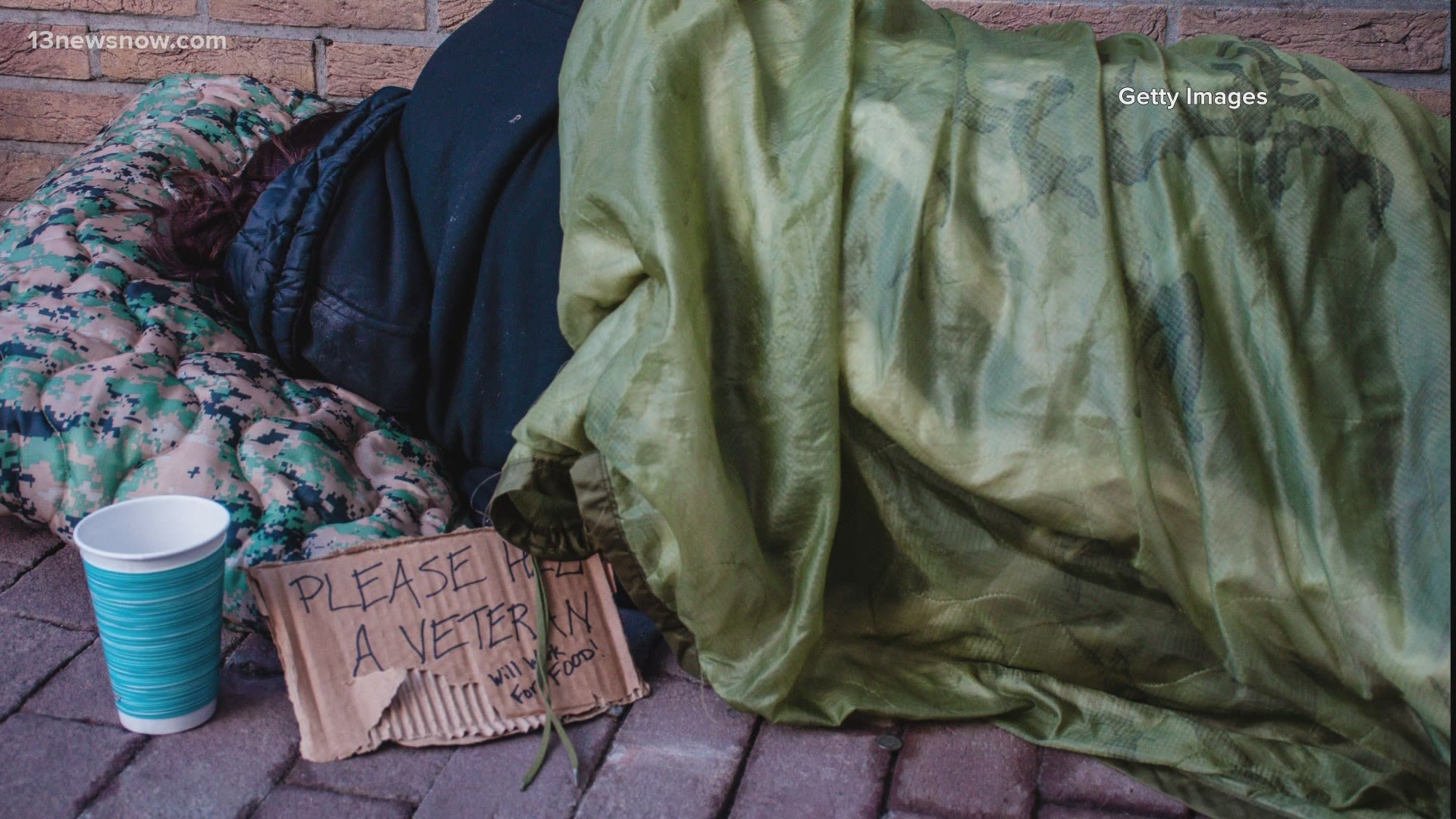NORFOLK, Va. — The number of veterans experiencing homelessness decreased by 50 percent from 2010 to 2019, according to the U.S. Department of Veteran’s Affairs. However, advocates fear the country is trending in the wrong direction since the COVID-19 pandemic began.
"We are absolutely concerned this pandemic has continued and how much longer agencies in the community will be able to maintain the level of services," said Kathryn Monet, C.E.O. of the National Coalition of Homeless Veterans. "It doesn’t seem like there is an end in sight."
The Associated Press reported Wednesday that more than 4,200 veterans have died from COVID-18 at hospitals and homes run by the Department of Veteran Affairs. Nearly 85, 000 veterans have been infected, according to the department.
While medical experts work to keep people healthy and communities fight to reduce the spread of the virus, advocates for veterans want to make sure unsheltered veterans have the necessary resources.
According to the Department of Housing and Urban Development, 37,000 men and women who served in the U.S. military were homeless in 2019.
“We’ve spent a lot of time in the last few months to fight for the resources to try and ensure we do not see a rise in numbers the next time people go out and count in January [2021],” said Monet.
The National Coalition of Homeless Veterans is a non-profit assisting community-based service providers and federal agencies that provide emergency and supportive housing, food, health services, job training, legal aid, and case management support for hundreds of thousands of homeless veterans, according to its website.
Monet says one of the biggest challenges since the pandemic involves accessibility to resources. Agencies are forced to change how services are delivered, and in some cases, access is limited.
"For example, certain veterans are finding challenges using their vouchers to find permanent housing because the housing authority might not be up and running," said Monet. “Or there might be a veteran that wants to go into substance use treatment, but if it is a congregant facility, they might not have any space for the veteran because they cannot keep the veteran in the shelter for as long as they’d like.”
According to Monet, the NCHV wants the U.S. Senate to approve the DELIVER Act. The bipartisan bill would expand air for unsheltered veterans during the pandemic and already passed the House in September.
Monet says many veterans are experiencing homelessness for the first time and leaders need to provide the resources to make sure they are supported.

